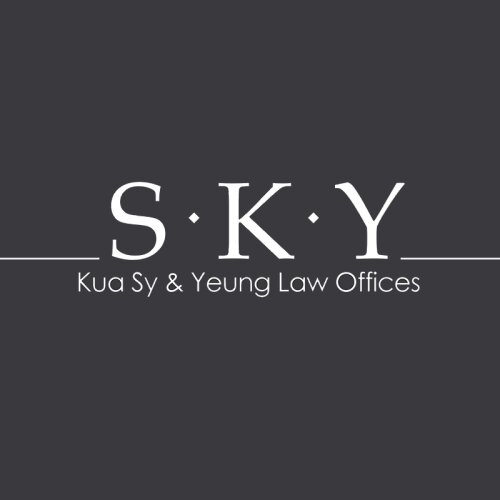Best Accounting & Auditing Lawyers in Pasig
Share your needs with us, get contacted by law firms.
Free. Takes 2 min.
List of the best lawyers in Pasig, Philippines
About Accounting & Auditing Law in Pasig, Philippines
Accounting and auditing play crucial roles in maintaining economic order and transparency in Pasig, Philippines. As a vibrant hub for businesses, Pasig experiences a substantial need for accurate financial reporting, tax compliance, and regulatory adherence. Accounting involves the process of recording, classifying, and summarizing financial transactions to provide insights into the financial health of a business. Auditing, on the other hand, involves the examination and verification of these financial records to ensure their accuracy and compliance with applicable laws and regulations. It helps detect fraud, mismanagement, and inefficiencies, and provides stakeholders with assurance regarding the financial integrity of an entity. In Pasig, accounting and auditing practices are governed by national laws such as the Philippine Financial Reporting Standards (PFRS) and are subject to oversight by bodies like the Bureau of Internal Revenue (BIR).
Why You May Need a Lawyer
Individuals and businesses in Pasig may require legal assistance with accounting and auditing for a variety of reasons. Misinterpretations of tax laws, compliance issues, and discrepancies in financial statements are common areas where legal guidance might be necessary. Businesses undergoing audits may face challenges from the regulatory authorities, requiring expert navigation through complex legal requirements. Additionally, if a business is accused of financial misrepresentation or fraud, a lawyer can help build a strong defense or negotiate settlements. Legal advisors can also provide preventive counsel to ensure that accurate accounting practices and thorough auditing procedures are followed, potentially avoiding costly legal issues.
Local Laws Overview
Accounting and auditing in Pasig are primarily regulated by nationwide laws such as the Financial Reporting Standards Council (FRSC) which oversees the adoption of the PFRS. The Bureau of Internal Revenue (BIR) enforces tax-related regulations, including the timely and accurate filing of returns. Auditing practice is governed by the Philippine Standards on Auditing (PSA) which outlines the guidelines for conducting audits. In addition to national standards, local ordinances in Pasig may address specific compliance requirements for businesses operating in the area. It's crucial for businesses to understand the interplay between national regulations and local ordinances to effectively manage their accounting and auditing processes.
Frequently Asked Questions
What is the role of a lawyer in accounting and auditing?
A lawyer advises on legal compliance, risk management, and helps resolve disputes or regulatory issues related to accounting and auditing.
How do national and local laws affect my business in Pasig?
Your business must comply with both national laws such as the PFRS and PSA, as well as any additional local ordinances specific to Pasig.
Can legal advice help avoid an audit-related penalty?
Yes, legal advice can help ensure compliance with relevant laws and prepare you for audits, potentially avoiding penalties.
What should I do if I receive a notice from the BIR?
Consult a lawyer immediately to understand the implications of the notice and develop a strategy for response and compliance.
What are common legal issues in auditing?
Common issues include non-compliance with auditing standards, inaccuracies in financial statements, and tax-related discrepancies.
Do I need a lawyer for tax disputes?
Having a lawyer can be highly beneficial in navigating complex tax laws and negotiating settlements or resolutions with tax authorities.
How can legal counsel assist in fraud detection?
Lawyers can work alongside auditors to identify irregularities and take appropriate legal action to address fraud or mismanagement.
What legal documents should businesses maintain for accounting purposes?
Businesses should maintain accurate financial records, tax returns, audit reports, and compliance certificates, among other documents.
How often should my business be audited?
The frequency of audits depends on regulatory requirements, business size, and industry practices; a lawyer can provide guidance specific to your situation.
What are the penalties for non-compliance with auditing standards?
Penalties may include fines, license revocations, or imprisonment, depending on the severity of the non-compliance and applicable laws.
Additional Resources
For individuals seeking more information or assistance, several resources may be helpful, including the Bureau of Internal Revenue (BIR) for tax-related inquiries, the Philippine Institute of Certified Public Accountants (PICPA) for professional accounting standards, and the Securities and Exchange Commission (SEC) for corporate governance matters. Additionally, local legal firms specializing in business law can provide tailored advice and representation.
Next Steps
If you need legal assistance in accounting and auditing, start by consulting a qualified lawyer with experience in this area. Gather all pertinent documents, such as financial records, audit reports, and correspondence with regulatory bodies, to provide your lawyer with a complete picture of your situation. Research local legal firms and consider scheduling consultations to discuss potential strategies and representation. It is also advisable to stay informed about the latest developments in accounting and auditing laws by attending relevant workshops and seminars.
Lawzana helps you find the best lawyers and law firms in Pasig through a curated and pre-screened list of qualified legal professionals. Our platform offers rankings and detailed profiles of attorneys and law firms, allowing you to compare based on practice areas, including Accounting & Auditing, experience, and client feedback.
Each profile includes a description of the firm's areas of practice, client reviews, team members and partners, year of establishment, spoken languages, office locations, contact information, social media presence, and any published articles or resources. Most firms on our platform speak English and are experienced in both local and international legal matters.
Get a quote from top-rated law firms in Pasig, Philippines — quickly, securely, and without unnecessary hassle.
Disclaimer:
The information provided on this page is for general informational purposes only and does not constitute legal advice. While we strive to ensure the accuracy and relevance of the content, legal information may change over time, and interpretations of the law can vary. You should always consult with a qualified legal professional for advice specific to your situation.
We disclaim all liability for actions taken or not taken based on the content of this page. If you believe any information is incorrect or outdated, please contact us, and we will review and update it where appropriate.












